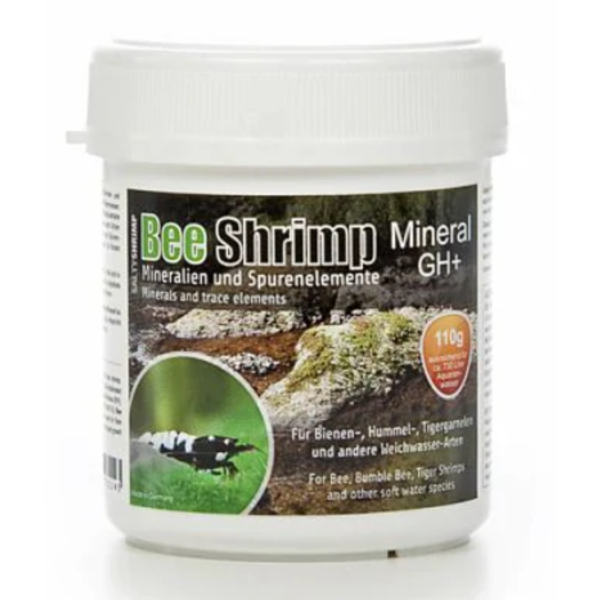Photo Disclaimer
Description
Bee-Shrimp Mineral GH+ has especially been developed for the keeping and breeding of bee shrimp, bumblebee shrimp and tiger shrimp in an aquarium, to mineralise RO water, rainwater, fully desalinated water etc. It raises the total hardness (°dH) without significantly influencing the carbonate hardness (KH). This is especially important for shrimp originating from softwater habitats (ratio of KH/°dH: 0.06/1.0).
Bee-Shrimp Mineral GH+ contains all the important minerals and trace elements your shrimp need for their well-being, an intensive colouration, successful breeding and healthy growth. It also furthers plant growth and the microbial regeneration of biological filter substrates. The danger of noxious bacteria is reduced, as these salts especially further the growth of antagonistic (beneficial) microflora.
Bee Shrimp Mineral GH+ does not influence the pH directly.
For keeping and breeding bee shrimp, aim for a pH of under 7. As soon as biological biodegradation processes start in your tank this may happen all by itself. However, if the pH remains higher, the low carbonate hardness (KH) enables you to influence the pH very easily, e.g. by the use of black alder cones or peat (both containing fulvic acids), or with pH-reducing additives.
Instructions of use
Mix with water outside of the aquarium. Bee-Shrimp Mineral GH+ dissolves almost completely within seconds, and the water is ready for use at once. Please make sure that any undissolved particles go into your tank, too. Close the container tightly after use.
Dosage
Use Bee-Shrimp Mineral GH+ to re-mineralise RO water, rainwater, fully desalinated water etc. to reach a total hardness of about 6 °dH and/or a conductance of about 200 +/- 50 µS (Microsiemens). For this purpose, an evenly full measuring spoon (about 3 g) to 20 litres of water is sufficient.
Measuring spoon included.
Content
• 110 g (sufficient for around 730 l)
• 230 g (sufficient for around 1530 l)
• Measuring spoon included
• reclosable can with screw-on lid

